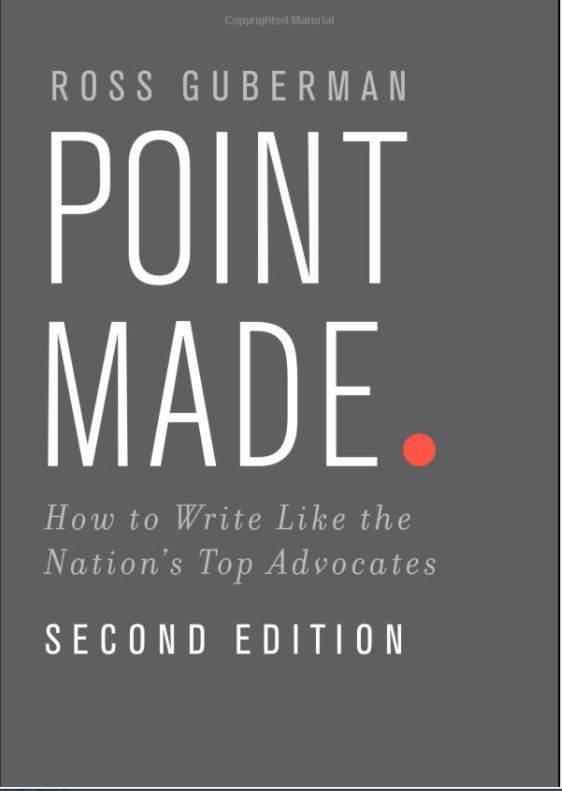Ten Ways to Write Like The New Yorker
 Looking for some writing inspiration?
Looking for some writing inspiration?
Start with The New Yorker, the nation’s best-edited publication. Add Jeffrey Toobin, a prominent legal journalist. Now mix in his account there of an unsolved murder of a Seattle federal prosecutor.
Here are ten great techniques at work in Toobin’s tale:
1. Start Sentences with Light Openers.
Wales, an Assistant United States Attorney in Seattle, had planned to have dinner and spend the evening with his girlfriend, Marlis DeJongh, a court reporter who lived downtown. But that afternoon Wales called DeJongh and said that he had projects he needed to work on at home. The notion that McKay was fired for failing to prosecute Democrats is plausible. But the passion that McKay brought to the Wales case may have played a part, too.
2. Link the First Sentence of a Paragraph to the Last Sentence of the One Before.
Neither Wales’s romantic life nor the fender bender yielded promising leads in the murder investigation.
Wales’s work on gun control also failed to produce suspects.
3. Begin a Paragraph with a Short Sentence.
Progress came slowly. Anderson remained the only suspect; in 2004, the Seattle Times reported that the F.B.I. had searched Anderson’s home in Beaux Arts and removed twenty-seven boxes of possible evidence.
4. Follow a Long, Complex Sentence with a Short, Punchy One.
By 2000, the investigation of the helicopter-conversion industry was winding down, with disappointing results for Wales and the U.S. Attorney’s Office. Only one case remained.
The firm, called Intrex Helicopters, which was based at Powell’s home, was renovating a single helicopter for civilian use. Still, the stakes were substantial.
 5. Use a Signpost to Link Your Sentence to the Previous One.
5. Use a Signpost to Link Your Sentence to the Previous One.
Several local entrepreneurs decided to retrofit the surplus military models for civilian use. Such conversions were legal, as long as they were conducted in accordance with safety rules established by the Federal Aviation Administration.
6. Convey Chronology Through Transition Phrases Rather Than Dates and Times.
In July, three months before his death, Wales had been involved in an altercation at a parking garage near his office.
About fifteen minutes later, someone shot him three or four times through the window from the back yard.
Two weeks after the murder, the Senate confirmed a new U.S. Attorney for western Washington, John McKay.
A month after [Wales] was killed, the group held a benefit in his honor, which was attended by more than five hundred people, including many prominent Democratic politicians in the state, and raised five hundred thousand dollars.
Meanwhile, Wales’s friends began to talk about creating a memorial.
Not long after the meeting, John Ashcroft visited Seattle to give a speech at a Coast Guard base, but he didn’t meet with McKay’s staff or mention the Wales case.
7. Use Semicolons for Parallel Constructions.
[United States Attorneys] establish the priorities for each of the nation’s ninety-four judicial districts and announce significant indictments and arrests; many are well known in their communities. Assistant U.S. Attorneys are more like civil servants; they perform the day-to-day work on important investigations and their public speaking is typically limited to the courtroom.
8. Hyphenate Phrasal Adjectives for Clarity and Elegance.
cell-phone towers
gun-control initiative
death-penalty case
law-enforcement official
information-sharing system
high-school students
highest-ranking official
organized-crime unit
forty-year-old pilot
9. Set off Explanatory Phrases with Dashes.
The proposal brought out the full might of the gun-control lobby, which spent four million dollars—primarily on television advertisements and direct-mail appeals—and voters rejected the measure, seventy-one to twenty-nine percent.
The F.B.I gave the investigation the code name SEPROM—short for “Seattle prosecution murder”—but the bureau set the reward for tips leading to a prosecution in the case at twenty-five thousand dollars, which was widely regarded in Seattle as an insultingly small amount, and did not offer local investigators assistance from Washington, D.C.
10. Use a colon to set off an explanation that could stand as a complete sentence.
The phrase was partly a joke, a bit of feigned grandiosity to justify a tendency toward excessive meticulousness: Wales did things slowly.
Original Article: Jeffrey Toobin, “An Unsolved Killing” (August 6, 2007)
 By
By


